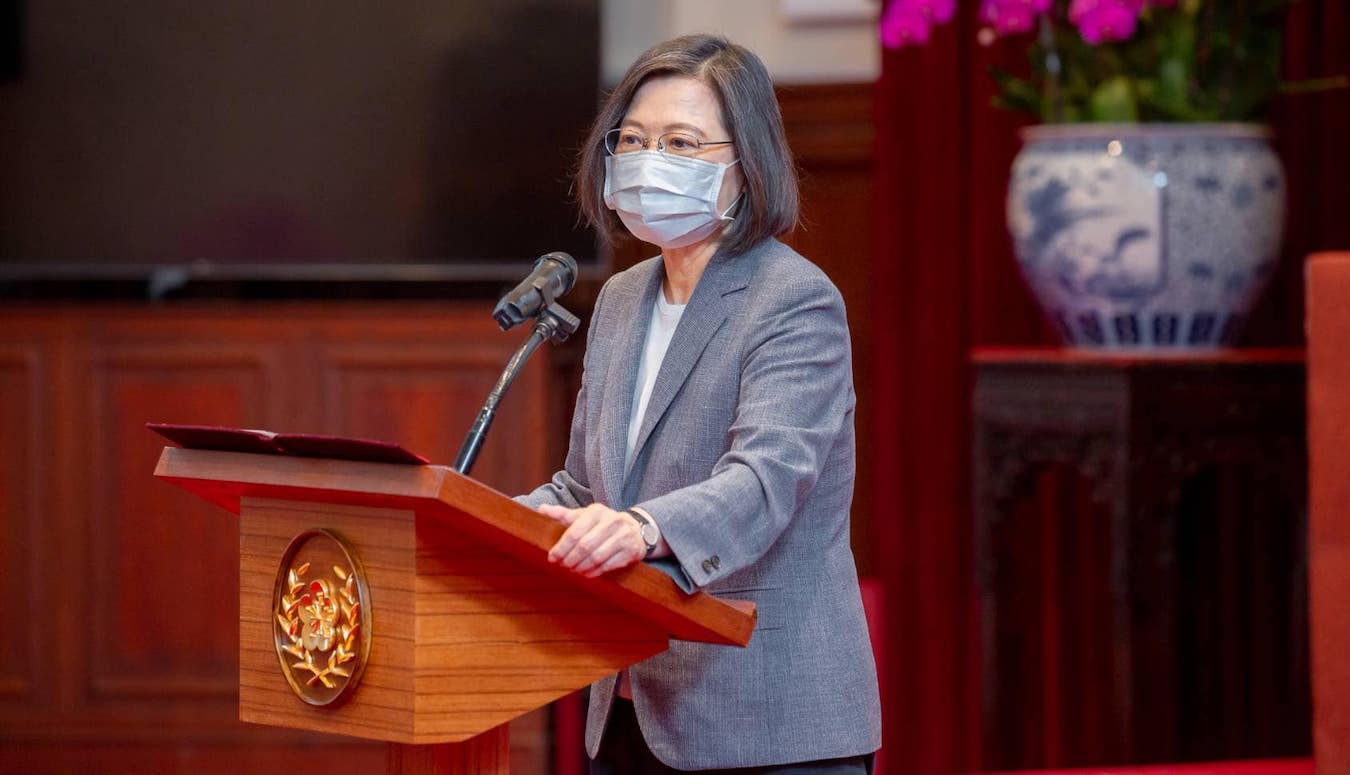by Brian Hioe
語言:
English
Photo Credit: 季霖 李/WikiCommons/CC BY-SA 2.0
THE TSAI ADMINISTRATION announced 6,000 NT in cash rebates to taxpayers last week. This would be in light of more than 180 billion NT in tax surplus this year, with President Tsai Ing-wen touting that this would be sharing the government’s economic windfall with the people. This could potentially take place as soon as February.
In particular, the Ministry of Finance estimated that last year’s national tax revenue would bring in 450 billion NT more than the budget for next year. Of this, 70 billion NT was allocated to funding local governments, 100 billion NT was to be allocated to electricity subsidies, National Health Insurance, and Labor Insurance, while 100 billion NT was to be used for government initiatives to deal with ongoing economic challenges. This would include subsidizing public transport, individuals renting homes or paying back loans for homes, subsidizing retail prices for daily goods, for small-to-medium-sized enterprises, and to attract international tourists.
But returning the 180 billion NT in tax surplus proved a flip-flop for Tsai, with Tsai originally stating that the government planned to hold onto this money because of continued global economic uncertainty. As such, the money could help with future challenges, or to cope with emergency situations. Tsai instead touted that funding used for National Health Insurance and Labor Insurance, as well as stabilizing prices for retail goods, would serve as means of returning this money to the public. In public comments, Tsai defended this move, though she stated that directly returning this money to the public
Tsai’s flip-flop suggests that there was internal pressure in the DPP to more directly return this money to members to the public in the form of cash rebates. As the DPP took a drubbing in nine-in-one elections in November, the DPP may have been aiming to placate the public in the form of quick cash hand-outs.
 Taiwanese president Tsai Ing-wen. Photo credit: Tsai Ing-wen/Facebook
Taiwanese president Tsai Ing-wen. Photo credit: Tsai Ing-wen/Facebook
Consequently, the Tsai administration has been criticized for “populism”, as well as short-sighted thinking in rapidly flip-flopping on the issue and prioritizing trying to keep the public through cash handouts over long-term thinking about what kind of social services or infrastructure could receive more funding to best serve the public. After all, 6,000 NT is hardly a large enough amount to change anyone’s financial outlook. Among the most vocal critics of the policy was Taipei city councilor Miao Poya, who criticized the Tsai administration for failing to spend the amount on infrastructure development.
The 6,000 NT could potentially serve as an economic relief measure for businesses affected by the COVID-19 pandemic. However, while economic vouchers to this effect were previously handed out by the Tsai administration and various local governments, the tax rebate will take the form of direct funds. The economic vouchers needed to be used for specific services and goods and have an expiration date, pushing recipients to spend them within a set timeframe, and to direct spending toward sectors in need of relief.
It is even possible that many will not spend the 6,000 NT at all, but just let this amount sit in their bank accounts. 6,000 NT might also prove more effectively distributed if targeting low-income demographics, when even significantly wealthy individuals that hardly have any need of 6,000 NT will also be given tax rebates.
This is not the first time that the issue of cash hand-outs has become a political issue in Taiwan. Namely, cash hand-outs are viewed as a quick and easy way for politicians to try and win votes–as though trying to bribe the public, or to buy votes.
Yet cash hand-outs evidently please the public, which is why politicians resort to this means. It is even the case that politicians will be accused of being callous to members of the public for refusing to consider cash hand-outs, particularly if they are to be distributed to the elderly.
Indeed, the issue of cash hand-outs was one of the issues contested between the three Taipei mayoral hopefuls during nine-in-one elections.
In the meantime, it is to be seen whether cash hand-outs benefit the Tsai administration in terms of popularity. The cash hand-outs are likely aimed at shoring up popularity ahead of 2024 elections one year from now, of course, with the DPP seeking means to turn around its image before then, but it is another question whether this helps.

